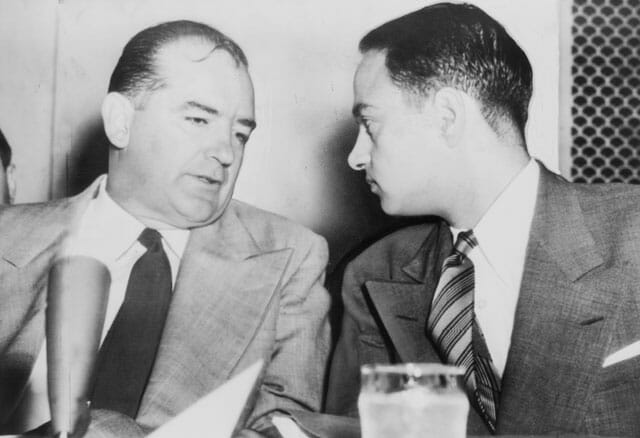The Taste of Future Sister-in-law (2023)Stipend
First Person

Photograph by Jan Mellström, via Wikimedia Commons. Licensed under CC0 1.0.
My new job came with a research stipend. I’d never had one before—a few grand that would renew each year for five years and then end. What could I use it for? “Anything,” I was told, which seemed remarkable, but as the months passed, it turned out to be harder to use the money than I thought. The rules were confusing, evolving. Every expense—a print cartridge, a pen, a meal with a student—required an array of online forms, approvals, files uploaded in special formats, and was a hassle for the beleaguered office administrator who wrote me careful, patient emails about my failures.
Only books required a single, simple form. I soon understood that “anything” meant I could buy books.
I can buy books. I’ve always been a person who buys books. I live in a city that has twelve independent bookstores within a short radius of my home. I began rotating between these stores, buying piles of books, and ordering them online too. I bought another bookcase, filled it, moved some furniture around, bought another. I know it’s the mark of an unstable mind to store more than one row of books on a bookshelf, so I stacked the second row horizontally, to achieve a causal, temporary effect. My husband wasn’t fooled but he rarely criticizes me, having his own demons he contends with every day and through the night in his sleep. He is aware that to love me means letting me proceed with whatever I believe I must do, which is one reason that, years ago, I divorced the other person I had married and married him.
Then the pandemic arrived, and I was inundated with pleas from bookstores: Save us, save us, please help. And I did my part for civilization. I ordered books and books and books, and piled them all over the house, in corners, behind the sofa, under the bed. I put them in boxes and hid them in the closet. My husband, meanwhile, sat in the same chair all day, or stood in the kitchen and cooked, or took long walks and “talked to God,” who, he maintained, had “come up and said hello,” to my horror. Unlike his other religious episode, which had lasted a few days, this one was going on and on, so it was easy to keep the books out of his narrow line of vision. I could have put them anywhere.
I often bought the same book twice. I’d be curious about deserts or civil war and order four books by bedtime. I bought six books about sand. I bought every book I could find (five) about how to construct a mammoth from DNA. I bought hundreds of novels, boxes of expensive graphic novels; I bought half a shelf of Paris Reviewinterviews, old editions, new editions, the Latin American volume, the volume of women. My husband didn’t say a word. The books he bought were becoming religious, piled beside his chair. Once, he asked me if I’d touched his books, if I’d touched this book, which he held up, and I denied it.
My office at home was overtaken. I waded through books on the floor. For that reason and also because our dog had gone mad, I moved my work into our little backhouse, set ten feet from our main house, and began storing books out there too. We had built the backhouse in hopes that my parents would visit. They never visited, and when they did, they didn’t stay in the backhouse, but instead took over our house and slept in our bed. Everyone on the block had a backhouse, backhouses all over town, two houses on one property. It was outrageous, more houses going up every day, crawling outward in all directions, like sunlight, or a disease.
***What a stipend! you might be thinking. You should have bought a spaceship and blasted away!
But the dark secret I concealed from my husband was that from the start I did not turn in the receipts. Partly, I didn’t want to make work for the beleaguered office administrator, who told me again and again how understaffed the office was, woefully so, and more understaffed by the day; how none of the admin had stipends, and had to pay for every book themselves out of their much smaller salaries, while, in fact, our whole field of study was coming down on all sides, collapsing. It was only by the greatest stroke of luck, I knew, that I found myself on the stipend-receiving side of the line at all.
Also, I found the receipt-submitting system difficult. I got it wrong over and over, and was scolded by the office administrator. I had only thirty days to turn in a receipt. I can’t do anything in thirty days. I need thirty days to brush my teeth. So instead I was spending our money.
Ahem, the office administrator would say, if she were here with us right now. You did soturn in receipts. And so I did, now and then, for appearances, but I was spending far beyond my allotted stipend. The office administrator would have thought I’d lost my mind if I’d turned in all those receipts. I hid them from her and from my husband. I was deceiving him, which was easy, because he had never looked at a bank statement in his life. He blithely left it all up to me. On his own, I believe, he’d go broke and not even know until he found himself living in his car, which would never happen, since he detested cars and had never owned one, walked fifty minutes each way to work—rain, heat, or freeze—while I drove to the same place he was going and parked in the lot. He often said we should give all our riches to the poor, at which point I would compulsively grab whatever object was closest to me and clutch it to my chest.
***Sign of the times, you might say. We all have too much stuff. I had too much stuff long before the stipend. In the many years when I had almost nothing, I still had too much stuff. Anyone reading this almost certainly has too many books, too many gadgets, too many clothes. They probably buy too much stuff online, cheap crap, four different kinds of plastic wrapped in three different kinds of plastic. How else do you think we are burning this planet to the core?
Big deal. I bought some stuff.
But I’m telling you, whatever you imagine is nothing like all these books.
***I don’t want a lesson here. I don’t want to shift into a slower metronomic thrum, the pace of insight. I just want to sit in this chair and feel the weight of all these books pressing down on the planks of wood flooring in my house, trees on top of trees, toppled, sliced, pulped, my house a graveyard in service of human wisdom. Sun circling. Tides going up, glaciers crawling back. Moon turning its pale coin toward us, then away. We bought this house because there was a single tree outside it, a giant post oak, over a hundred years old, with a thousand branches in the sky. My husband pre-mourned this tree, cried over it many times, certain we would kill it with our love, and we did: endlessly summoning the arborist, adding “vitamins” to the dirt, (over?)watering it. It fell down in the middle of the night, crushed our neighbor’s car, lay in the street, its canopy so big it looked like a forest had grown in the road. At dawn, men from the city arrived and chopped it into pieces, fed it into a chipper, and drove it away.
No pace of insight, because no insight came. I came down with COVID. This was long after everyone had come down with COVID, recovered, caught it again, recovered again. It was so long after vaccines that I’d forgotten to get the past couple of boosters. I didn’t get better. I was sick for months, hauling myself out of bed for my job and crawling back in. I lay there and read a sixteen-hundred-page biography of Kafka, three volumes long, and I felt my life ebb away from me as Kafka’s life ebbed away from him. Somewhere along the way, he contracted tuberculosis. It took him five hundred pages to die. I read every page and all the endnotes, a hundred pages of them, and I wrote all over the margins, filled up my notebook and then another notebook with musings about Kafka, death, aging, futility, books, art, loss. I read about Kafka’s world, the Prague gone a century, the Eastern European Jews fleeing, moving across the earth, west like the sun, like flocks of antelope or birds, or like water flowing toward other water, I myself derived from one of those droplets, an ancestor washed up onto the beach of a faraway coast, washing through the country, arriving in my Texas town.
Why did I buy so many books? I’m a big reader, but I could not possibly read all those books. The stipend had utterly defeated me. But I love these books. I love the ones I’ve read and the ones I haven’t. They fill me with joy. I feel rebellious in spirit, beholding them. I love picking them up, getting ready to read them. The ones I’m excited about beam to me from their shelves. Desire and slow fulfillment as I finally pick each one up and begin to turn the pages, sink into the lines, the dark markings resolving into meaning and connection to other humans, near and far. I don’t want this world to die. I feel it slipping away. I could do this all day, I could do this my whole life.
***The five years had come and gone. No more money was going in, but there was still so much left in the stipend account. Because, it turned out, the stipend never expires. Even if you retire, it’s still there, though you can’t use it. It just waits for you to die and then it goes on without you. I get closer to death every day. I applied to go on a residency to the Arctic. A swarm of artists heading north on a ship. I left my husband behind with our dog. Our mad dog had developed a limp, as if he’d come home from a bad war. He was deaf, too, and every night he stared into the bathroom mirror and cried. I can’t explain this but it’s true. I was still buying books. My husband had stopped talking to God, or at least stopped talking about talking to God, but he was talking about other things that made me anxious, and I held on to our pledge to let each grow as we would. I arrived at the Arctic slowly, like the tide creeping in. I flew on many atmosphere-destroying planes—to Frankfurt, then Oslo, then Svalbard (twice, because the pilot couldn’t land the plane and had to fly away and try again the next day, like certain birds that dive into water and find a fishless ocean and have used nearly all their strength but must try again). I boarded the ship. I drifted north. I saw ancient glaciers crashing and melting, I saw polar bears walking their solo philosophical paths, I saw the trails the whales make in the water. I heard the song of the walrus. In their glorious family pile, the walrus made sounds that were supersonic, dinosauric. I read nothing. I had books with me and sometimes I picked one up and held it in my hands but did not look at the pages. I watched a sun that did not set but rolled around the edge of the horizon, throwing disorderly shadows in loops. I saw shining icebergs streaming water and ice, pieces of them cracking off and flinging outward. I danced on a helicopter pad until a dawn that didn’t look like dawn, a dawn that looked like nothing, that looked like it did when I had begun dancing hours before. I sloshed through brash ice, felt the freezing wind on my face. I saw pack ice like giant puzzle pieces rising and falling on a dark ocean. I was gone nearly a month. When I was ready, I came home slowly, like water going out, draining, leaving in stages, backward through Svalbard, Oslo, Frankfurt, Dublin. I arrived home, dizzy with primeval diseases, sicker than ever, but jubilant, and my husband wrapped me in his embrace and for hours said nothing that alarmed me. In the coming week I would submit the receipts for my trip; I would spend days on the project, fill out all the forms wrong, and the beleaguered office administrator would have to redo them so many times that I would buy her a gift card to a nearby bookstore in thanks, and it was so expensive that my account would fall to zero and I’d still have thousands to pay. But the stipend was gone and I was alive.
Deb Olin Unferth’s next book, the novelEarth 7,is forthcoming in 2026. She is the author of six other books, including the novelBarn 8and the story collectionWait Till You See Me Dance.





